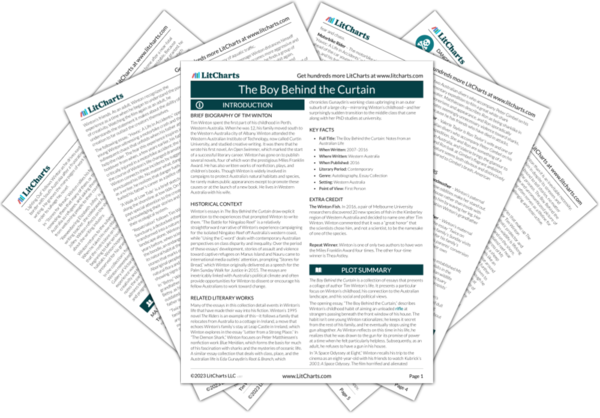Previous
Remembering Elizabeth Jolley
|
Previous
Remembering Elizabeth Jolley
|
The Boy Behind the Curtain: Sea Change Summary & Analysis |
Next
Barefoot in the Temple of Art
|


Upgrade to unlock the analysis and theme tracking for all of The Boy Behind the CurtainThe Boy Behind the Curtain!
Get LitCharts A+